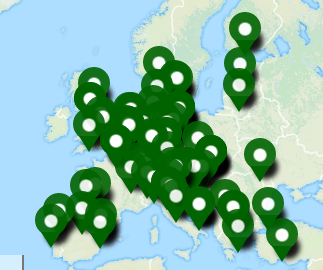On 14 March the last submission period closed for contributions to the conference. After a first quick review it was already clear that all expectations were far exceeded: more than 350 scientific papers were received from a broad range of disciplines such as economics, psychology, geography and urban planning. Further 260 proposals for practice-based activities were submitted by various civil-society organizations and initiatives. The majority of the contributions came from European countries, although there were also submissions from Japan, India,Mexico, Brazil and the United States.
Professor Tim Jackson, author of „Prosperity without Growth“, and member of the conference’s advisory board, sees the conference as an important step towards overcoming the growth paradigm: „I hope that this conference will help shape a positive vision of an equitable and sustainable post-growth society“. Nina Treu, programme coordinator of the conference, is pleased: “The high number of contributions shows the great interest in the topic. I am sure that now we can put together a conference programme with many superb presentations and activities.”
At the conference there will be seven keynote-speeches and more than 20 panel discussions. Around 250 activities will take place on the basis of the received submissions, in addition to an inspiring artistic programme. Confirmed speakers are among others Naomi Klein, Sunita Narain, Alberto Acosta, Esperanza Martinez, Harald Welzer, Joan Martinez-Alier and Angelika Zahrnt.

For many of us, swimming will have provided a temporary relaxing escape from the pandemic and searing heat in the recent summer months. In this piece republished from Undisciplined Environments, Elliot Hurst suggests the activity holds more radical potential than one might think. In Aotearoa New Zealand, shortly after arriving at the strategy gathering of a youth climate group, a friend ...

In the past year, we have launched a survey worldwide for mapping degrowth realities in the world. 114 organisations answered to the call, with nearly 3,000 active people engaged, mostly located in Europe but also in North and South America, Philippines, Tunisia, Turkey, etc. On August 20th 2018, some members from each of them met for the first time in Freetown Christiania (Copenhagen, Denm...
Interview with Katja Kipping Katja Kipping is chairwoman of the German Left Party and Member of the German Parliament. Besides her engagement for good working conditions in her capacity as spokesperson for social affairs, she supports the exchange between party politics and civil society through engaging in social movements such as the network for unconditional basic income. For this interview...